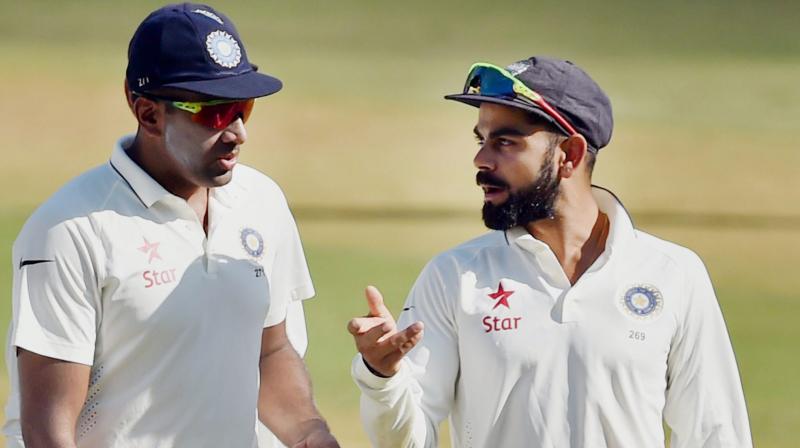It is the season of change in India. Chief Ministers are being changed across states. First, Tirath Singh Rawat was replaced by Pushkar Singh Dhami in Uttarakhand by the BJP. Next, Karnataka bid adieu to B. S. Yediyurappa, and then came the turn of Vijay Rupani in Gujarat. Seeing the stealth and precision with which the BJP could replace its chief ministers, the Congress too unceremoniously got rid of Captain Amarinder Singh as Punjab’s chief minister and replaced him with Charanjit Singh Channi. If chatter is to be believed, the next frontier which could see a rejig is the Indian cricket team. Virat Kohli is purportedly counting his final days as India’s limited-overs captain.
The clock has started ticking for Virat Kohli. Since the tour of England, the buzz has been that Virat would be removed from white ball captaincy. It was also a matter of discussion whether the Board of Control for Cricket in India (BCCI) was ‘unhappy’ with the skipper. Of course, when contacted, BCCI treasurer Arun Dhumal denied all such insinuations. However, the very next day, Kohli put in his papers as India’s T20 captain, effective after the World Cup.
If sources are to be believed, the revolt against Virat had started within the team a few months ago. It has come to light that several senior players in the dressing room were miffed at the attitude of the ace cricketer. Things have gone as far as a senior player of the team complaining to the BCCI secretary against Virat for making him feel ‘insecure’. Virat had reportedly accused the senior cricketer of showing ‘no intent’ during the World Test Championship final against New Zealand.
Now, it has emerged that senior off-spinner Ravichandran Ashwin is one of the “mutineers” against Virat Kohli. During the tour of England, Virat’s insistence on not including Ashwin in the playing XI, despite the advice of experts, has worsened the woes for the captain. Furthermore, Virat Kohli wanted the inclusion of Yuzvendra Chahal in the T20 team instead of Ashwin. However, the BCCI sternly included Ashwin in the team, and this has only led to the widening of fault lines between Kohli and the cricket board. Additionally, the BCCI’s appointment of MS Dhoni as a mentor for the T20 World Cup team came as a surprise for Kohli and is a clear attempt by the cricket board to rein in the captain’s authority.
Kohli has not scored an international hundred since November 2019. His clock has been stuck on 70 centuries, refusing to tick further. Under Virat Kohli’s captaincy, India has attended the ‘Choker’ tag for losing in the semifinals and finals of key tournaments. He has led India in 45 T20s, resulting in just 27 wins. He has neither been able to win an ICC trophy for India nor has his captaincy resulted in an IPL trophy victory for his franchise, Royal Challengers Bangalore.
The clock had started to tick in 2019 when Sourav Ganguly took over. At the time, he had sternly reminded Kohli that he needed to win an ICC trophy. Ganguly said, “My only thing is that they need to win big tournaments. They are not going to win every time but they have gone through seven tournaments without winning one,” Now, Ganguly is vouching for Rohit Sharma as India’s next captain, at least immediately in the ODI format.
For team players to turn against their captain is really a statement against Kohli’s ability to lead the Indian team. Interestingly, after R Ashwin’s reported complaint to the BCCI against Kohli, the captain has relinquished the captaincy of Royal Challengers Bangalore and the World T20 teams. Given the chatter of BCCI closing in on Kohli’s captaincy across formats, it seems Kohli wanted to convey that the decision to give up the captaincy was by his own accord and that the BCCI played no role in it whatsoever. However, the reality seems quite contradicting. Now, Virat Kohli’s entire career depends on the T20 World Cup. His performance in it will determine whether his captaincy even in one format continues.






